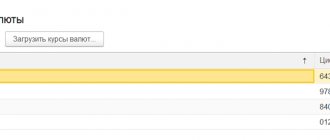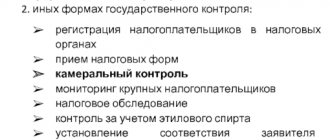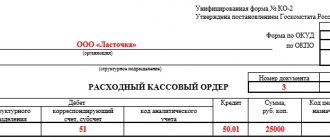Securities and their sale
A security is a document that evidences property rights. In other words, it establishes the right of its owner to certain tangible and intangible values. Each of them has its own value and acts as a means of circulation. These include:
- corporate bonds, state, municipal;
- shares (preferred and ordinary);
- bearer passbook;
- certificates (savings and deposit);
- checks;
- bills;
- other documents related to them in accordance with the law.
Existing securities have different capabilities and are systematized by form. The most significant classification is represented by the Russian Civil Code, according to which the following types are distinguished:
- registered, order, bearer;
- emission and non-emission;
- documentary, non-documentary.
The sale of securities is a paid, and in some cases gratuitous, transfer (including exchange) of the ownership rights of one person to another, which is possible only upon presentation of these documents. Sales (purchases) are carried out at auctions in the conditions of the stock exchange. There is over-the-counter (organized and unorganized) trading, where participants (non-professionals) are those who do not conduct full-fledged trading in certificates on the exchange.
Legislation regulating activities with securities
The legislative system in relation to dealing with securities on the stock market is represented in Russia by the following regulatory and legal documentation:
| № | Document's name | When was it accepted? | Date of changes made |
| 1 | Civil Code of the Russian Federation. | October 21, 1994 | 2015–2016 edition, chapter 7. |
| 2 | Tax Code of Russia. | 31.07.1998. | With changes and additions dated 05/30/2016. |
| 3 | Law N 2023–1 “On the tax on transactions with securities.” | 12.12.1991. | Edition as of December 23, 2003. |
| 4 | Federal Law N46 “On the protection of the rights and legitimate interests of investors in the securities market.” | 5.03.1999. | As amended on July 23, 2013. |
| 5 | Federal Law N208 “On Joint Stock Companies”. | 26.12.1995. | Current version 2016 |
| 6 | Federal Law No. 229 “On Enforcement Proceedings”. | 2.10.2007. | Art. 90–92. According to Federal Law No. 135, the last changes were made on 05/01/2016. |
| 7 | Federal Law No. 39 “On the securities market”. | April 22, 1996 | Current edition since July 2016 |
For failure to comply with Russian securities legislation, violators are subject to administrative, civil or criminal liability. Since September 2013, the powers of the abolished FSFM have been transferred to the Service of the Central Bank of Russia for Financial Markets and (or) its interregional departments. Since then, the Central Bank Service has carried out supervision, control and coordination in the field of financial markets. It was abolished in 2014, and the listed responsibilities were transferred to the structural divisions of the Central Bank. All reports, documents, and other information are reviewed by authorized bodies in the prescribed manner.
Results
Thus, the sale of securities on the territory of the Russian Federation is not subject to VAT if the enterprise carries out transactions at its own expense and on its own behalf. Services provided in the securities market by registrars, depositories, dealers, and brokers, regardless of the type of securities, are also exempt from VAT.
However, when providing services for the production, sale and registration of securities forms, VAT must be calculated and paid to the budget.
Find out which VAT-free goods are enshrined in the Tax Code here.
See also: “Transactions not subject to VAT: types and features.”
You can find more complete information on the topic in ConsultantPlus. Free trial access to the system for 2 days.
Methods for selling securities
Transactions with securities occur through trades of the organizer within the stock exchange. Trade participants who carry out the sale are brokers, dealers or the manager to whom the documents are given for management. The timing and procedure are determined by Federal Law No. 39 “On the Securities Market”. In trading on the market, the provisions of the Federal Law “On Enforcement Proceedings” do not apply.
According to the generally accepted procedure, seized securities are sold. If within a month after repeated auctions they have not been sold, the claimant is given the opportunity to keep them at the market quotation of the last hour of the previous day when they were put up for sale.
The price of documents put up for sale must be no less than the weighted average (or market quote) for the last hour of trading on the previous day. Transactions on one security can be carried out through several trading organizers. Then the payer himself chooses the market quote of one of the organizers. If the quotation is not determined by the organizer, then half of the minimum and maximum cost of transactions carried out for the entire day through the organizer is recognized as it (Tax Code of the Russian Federation, Article 280). The main ways to implement such documents:
- for cash rubles and non-cash payments;
- by making contributions from shareholders (currency, intangible assets [identifiable non-monetary assets without physical form], valuables in the form of objects, goods, property);
- through consolidation, splitting, replacement with previously issued shares;
- registration of old shares in shares;
- by capitalizing their funds.
The payer's profit from the sale (redemption) comes from the cost of the security itself, the increased interest income paid by the buyer and the coupon income paid by the issuer. Expenses during the sale are determined taking into account the price of the document for its purchase, the costs of the sale itself, and the interest income paid to the seller.
Sale of listed shares
The taxation of listed shares depends on how the securities are disposed of.
If a transaction with listed shares was made through a Russian or foreign trade organizer, then when taxing, take into account the actual price of their sale or other disposal.
When selling (transferring under an exchange agreement) listed shares outside the organized securities market, control over their compliance with the market price comes down to the following. It is necessary to compare the actual selling price of a share with the price range for similar shares (its minimum and maximum value), which was registered by the organizer of trading on the securities market on the date of the transaction.
For tax purposes, the date of the transaction means:
- the date of the trading at which the shares were sold - if the shares were sold on the organized securities market;
- the date of signing the agreement under which the shares were transferred to the counterparty - if the shares were transferred outside the organized securities market. If the parties to the agreement entered into an additional agreement that amended the essential terms of the main agreement, consider the date of the transaction as the date of conclusion of the additional agreement. This follows from the provisions of paragraphs 11 and 12 of Article 280 of the Tax Code of the Russian Federation. Similar clarifications are contained in the letter of the Ministry of Finance of Russia dated November 1, 2010 No. 03-03-06/1/679.
The actual selling price of shares corresponds to the market price if the following restriction is met:
| Actual selling price of shares | ≥ | The minimum price for shares being sold, registered by the organizer of trading on the securities market on the date of the transaction |
If the specified restriction is observed, then determine the income from the sale (exchange) of shares based on the contract price (the actual sale price of the shares).
If the specified restriction is not observed, then determine the income from the sale (exchange) of shares based on the minimum price of shares registered at the auction.
If, on the date of the transaction, trading was carried out with several organizers of trading on the securities market, the organization has the right to independently select one of them whose price range will be used for comparison for tax purposes.
If on the date of the transaction the trading organizers do not have information about the price interval for the shares being sold, then for comparison you need to use the price interval that was recorded on the date of the nearest trading before the day of the transaction. Moreover, such trades must be held at least once in the last three months before the transaction. It should be noted that the organization does not have the right to use the data of trading organizers who made only one transaction if there is information about other organizers who carried out several transactions in shares.
If on the date of the transaction only one transaction (single) was concluded for the securities being sold, then the price of such a transaction is recognized as the maximum (minimum) price.
This procedure is established by paragraphs 10, 11, 12, 14 of Article 280 of the Tax Code of the Russian Federation and is confirmed by letter of the Ministry of Finance of Russia dated August 29, 2011 No. 03-03-06/1/533.
VAT on the sale of securities and benefits
On Russian territory, in pursuance of the Tax Code (Article 149) and methodological recommendations (Clause 16) on the application of Ch. 21 “VAT”, the sale of securities is subject to preferential treatment - not subject to value added tax. We are talking about replacing the owner of a security through purchase and sale, donation or exchange. Moreover, such operations related to the sale must be carried out on behalf of the participant and at his expense.
The exception is the services of intermediaries (brokerage activities, commission amounts, etc.). They also include:
- depository;
- transportation of papers;
- execution and registration of transactions;
- crediting, paying interest, part of the profit at the client’s request;
- management of document packages.
The specified types of services, such as: preservation, production of securities, compilation and maintenance of a register of their owners, and other individual actions related to securities, are subject to VAT in the generally accepted manner. They are not subject to VAT benefits.
Input VAT is distributed across all types of activities (brokerage, dealer), with subsequent separate accounting of costs by the market participant. In some cases, when it is not possible to separate expense accounting, participants distribute VAT in proportion to the income received from each type of activity. The proportion for the distribution of general business expenses is calculated on the basis of the commodity value (or services, work) in a single amount of sales income for the tax period.
Free transfer of goods
The gratuitous transfer of ownership of goods, the results of work performed, the provision of services on the territory of the Russian Federation is recognized as the sale of goods (work, services) and is subject to VAT (clause 1, clause 1, article 146 of the Tax Code of the Russian Federation).
A transfer is considered gratuitous in which goods (work, services) are provided to the other party without receiving payment or other consideration from it (Article 423 of the Civil Code of the Russian Federation).
The moment of determining the tax base in this case is the day of shipment (transfer) of goods (work, services), property rights (clause 1 of Article 167 of the Tax Code of the Russian Federation).
The tax base for gratuitous transfer is defined as the cost of the specified goods (work, services), calculated on the basis of prices determined in a manner similar to that provided for in Article 105.3 of the Tax Code of the Russian Federation, taking into account excise taxes (for excisable goods) and without including tax (clause 2 Article 154 of the Tax Code of the Russian Federation). Since, for tax purposes, prices applied in transactions to which parties are persons who are not recognized as interdependent are recognized as market prices, then when selling goods (work, services) on a free basis, the tax base is determined as the cost of these goods (work, services), calculated on the basis of market prices (letter of the Ministry of Finance of Russia dated November 30, 2016 No. 03-07-11/70848).
Due to the fact that during a gratuitous transfer, the transferring party does not present for payment to the receiving party either the price of the goods (works, services) being sold, or the amount of tax, VAT to the budget is paid at the expense of the transferring party’s funds (letter of the Ministry of Finance of Russia dated April 16, 2009 No. 03 -07-08/90).
When goods (products) are distributed free of charge for advertising purposes, an object of VAT taxation also arises. At the same time, in accordance with subparagraph 25 of paragraph 3 of Article 149 of the Tax Code of the Russian Federation, the transfer for advertising purposes of goods (work, services), the cost of acquiring (creating) a unit of which does not exceed 100 rubles, is exempt from taxation. When carrying out, along with VAT-taxable activities, such tax-exempt transactions, the taxpayer is required to keep separate records (clause 4 of Article 149 of the Tax Code of the Russian Federation).
When distributing goods (products) for advertising purposes, it is necessary to take into account that the object of VAT taxation arises only if advertising materials that meet the characteristics of the product, i.e., property intended for sale in its own capacity, are transmitted.
If advertising materials (flyers, catalogs, brochures, etc.) are transferred to the other party, which do not have the characteristics of a product and are part of the activities to promote manufactured and (or) sold goods on the market, then the object of VAT taxation does not arise regardless of the amount of expenses for their acquisition (creation) (see paragraph 12 of the Resolution of the Plenum of the Supreme Arbitration Court of the Russian Federation dated May 30, 2014 No. 33, letters of the Ministry of Finance of Russia dated December 23, 2015 No. 03-07-11/75489, dated December 19, 2014 No. 03-03- 06/1/65952, dated 10/23/2014 No. 03-07-11/53626).
If advertising products costing more than 100 rubles are distributed, then VAT is assessed in the generally established manner, and amounts of input VAT can be claimed for tax deduction in the generally established procedure.
If the cost of advertising products does not exceed 100 rubles, then the amount of input VAT must be taken into account in its cost (clause 1, clause 2, article 170 of the Tax Code of the Russian Federation). In this case, it is necessary to take into account the following features of the application of VAT:
- if, when accounting for purchased goods (products), it was assumed that they would be used in activities subject to VAT and input VAT was accepted for tax deduction, then when distributing these goods (products) for advertising purposes, the amount of input VAT must be restored in accordance with subparagraph 2 of paragraph 3 Article 170 of the Tax Code of the Russian Federation;
- the taxpayer has the right to refuse VAT exemption when distributing goods (products), the cost of acquiring (creating) a unit of which does not exceed 100 rubles, by submitting a corresponding application to the tax office no later than the 1st day of the quarter from which he intends to refuse to apply the benefit (Clause 5 of Article 149 of the Tax Code of the Russian Federation);
- even if the share of total costs for the acquisition (creation) of such advertising goods (products) does not exceed 5% of the total total costs for the acquisition, production and (or) sale of goods (works, services), property rights, then VAT charged on goods ( works, services) used exclusively for advertising purposes are not accepted for deduction, but are taken into account in the cost of the corresponding goods (works, services) (paragraph 7, paragraph 4, article 170 of the Tax Code of the Russian Federation, as amended by Federal Law No. 335 of November 27, 2017 -FZ).
If products are distributed that do not meet the characteristics of the goods, then, according to the Russian Ministry of Finance (letter dated December 19, 2014 No. 03-03-06/1/65952), the amount of input VAT should be included in the initial cost of such goods (products).
When transferring goods free of charge for advertising purposes to an indefinite number of persons, the drawn up invoice should contain dashes in the lines “Consignee and his address” (line 4), “Buyer” (line 6), “Address” (line 6a), “TIN/ Buyer's checkpoint" (line 6b) (letter of the Ministry of Finance of Russia dated March 1, 2005 No. 03-04-11/43).
| 1C:ITS For more information about the gratuitous transfer of goods, works and services, see the “Value Added Tax” reference book in the “Taxes and Contributions” section. |
Let us remind you that as of October 1, 2017, changes have been made to the forms and rules for filling out (maintaining) invoices, purchase and sales books, the journal of received and issued invoices, approved. Decree of the Government of the Russian Federation dated December 26, 2011 No. 1137.
For more information about important changes to VAT, effective both from 10/01/2018 and from 01/01/2019, read the article “Tax increases and other tax innovations”.
Income from securities transactions and taxation
Profit from transactions carried out with securities, depending on the method of its receipt, can be characterized as follows.
| Ways to make a profit | Peculiarities | Taxation |
| Initial placement | Personal shares are placed at or above par, as well as other people's shares on behalf of others. Profit is received when shares are higher than par (in the first case) and when providing placement services (second option) | VAT at a rate of 33% is levied on profits received for the placement of non-own shares, since here it is remuneration for the work of an intermediary |
| Possession of a security | Income is received by legal entities (banks) in the form of interest on non-government securities and dividends | If income is paid in additional shares, tax is calculated at a rate of 15%. When repaying bills (corporate bonds), income tax is withheld at a rate of 30%, and 38% for credit institutions. Income from securities owned by the state is not subject to taxation |
| Purchase and sale | Transactions are carried out in which the owner of corporate or government securities changes. A purchase and sale agreement is concluded for a specific number of shares purchased, for example. | Transactions involving the circulation of securities are considered preferential and are not subject to VAT. |
Taxpayers for transactions with securities can be legal entities and individuals who engage in them (see → “What is subject to VAT. VAT payers”). The amount of tax payment is calculated by them independently, depending on the tax rate and the face value of the issue. Payment is made upon registration of transactions (issues). Individuals pay personal income tax no later than July 15 of the year following the year of profit, based on the submitted declaration. Control over the correctness of calculation and timely payment is carried out by the tax authorities.
simplified tax system
When applying the simplification, income from the sale of shares when calculating the single tax is taken into account in the same order as when selling goods.
Shares, like any securities, are classified as movable property (Clause 2, Article 130 of the Civil Code of the Russian Federation). For tax purposes, shares sold or intended for sale should be considered as goods (clause 3 of article 38, clause 1 of article 39 of the Tax Code of the Russian Federation). To simplify things, in contrast to the general taxation regime, no special rules have been established for determining the tax base for transactions with securities. Therefore, regardless of the chosen object of taxation, reflect in income all proceeds from the sale of shares as payment is received (clause 1 of article 346.15, clause 1 of article 346.17 of the Tax Code of the Russian Federation). Similar explanations are given in letters of the Ministry of Finance of Russia dated November 11, 2013 No. 03-11-06/2/47963 and the Federal Tax Service of Russia dated March 25, 2013 No. ED-4/5036.
When accounting for expenses for the acquisition of shares, follow the procedure depending on the chosen object of taxation (clause 1 of article 346.14, clauses 1 and 2 of article 346.18 of the Tax Code of the Russian Federation).
For example, if the object of taxation is income, then do not take into account expenses in the form of the cost of purchasing shares being sold when calculating the tax.
When calculating the single tax on the difference between income and expenses, the tax base can be reduced by the cost of acquiring shares (subclause 23, clause 1, article 346.16 of the Tax Code of the Russian Federation, letter of the Ministry of Finance of Russia dated November 11, 2013 No. 03-11-06/2/47963 , dated January 24, 2011 No. 03-11-06/2/08 and dated October 6, 2009 No. 03-11-06/2/201).
Example #1. Purchase of shares and related services
The organization is going to buy shares of Russian enterprises. For this purpose, she turned to a consulting company that is engaged in a comprehensive study of the activities of these enterprises. After reviewing the report submitted by the company, containing tax and legal analysis, the organization decided to refrain from purchasing shares of these enterprises. The operations of the organization can be described as follows.
| Display of operations carried out by the organization | Accompanying documentation |
| Cost of consulting services | Acceptance certificate. Deciding not to buy a stock |
| VAT on consulting services | Invoice |
| VAT on consulting services in their cost | Invoice, accounting certificate, decision not to buy |
| Transfers towards fees for consulting services | Current account statement |
Example #2. Purchase of shares, associated costs and VAT
The organization purchased ordinary uncertificated registered shares from the issuer for a single amount of 700 thousand rubles. In terms of actions with this type of documents, the costs incurred were: non-operating expenses in terms of payments for registrar services (more precisely, for opening a personal account), expenses in terms of the purchase of uncertificated shares - re-registration of rights to them (Tax Code of the Russian Federation, Article 265 and Article 280 ). Payments for registration services were made together with VAT. Their amount is not deductible, because the sale of securities in accordance with the code (Article 149) is not subject to VAT.








